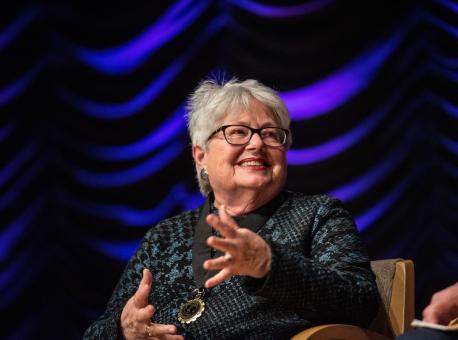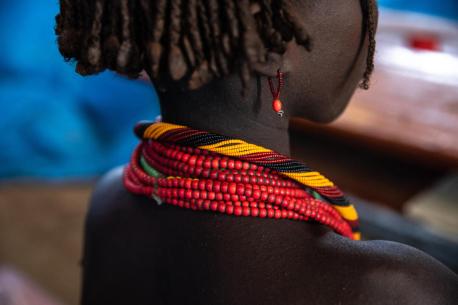
Married in the Fifth Grade in Yemen
Quiet and intelligent, 15-year-old Sabrin dreams of becoming a doctor someday. She should be in school now, but when she was in fifth grade, her parents married her off to a man who is 16 years older than she is.
Before war broke out in Yemen in 2015, Sabrin lived with her parents and siblings near a military camp in Sana'a. When the fighting began, the family fled in terror, settling in an abandoned house in Lahij, eight hours away. They struggled to get by. Sometimes there was nothing to eat.
That's when Sabrin's uncle called to say that a man he knew wanted to marry her. Sabrin protested, but it was a done deal: Her father had already accepted and spent $900 in dowry money to pay for food and other expenses. Her childhood was over.
Ten-year-old videographer Abu Baker Al Saqqaf picked up a camera recently to help Sabrin share her story, below:
As the war in Yemen nears its fourth anniversary, more than 80 percent of the country's children require humanitarian assistance. At least 2 million children are out of school. More than two-thirds of all Yemeni girls are married off before the age of 18. One of the poorest countries in the Arab world, Yemen does not criminalize rape. It remains one of only a handful of nations in the region with no legal minimum age for marriage.
Child marriage is a human rights violation. It causes immense physical and psychological harm to girls. Girls who marry before they turn 18 are less likely to remain in school and more likely to experience domestic violence. Yet each year, 12 million girls worldwide are married before their 18th birthday. "Every mother should let her daughter continue her education," Sabrin's mother says, sadly. "Money fades away."
Read more about child marriage in Yemen here.
Top photo: When 15-year-old Sabrin was a fifth grader, her father accepted $900 in dowry money from a man who wanted to marry her. © UNICEF
HOW TO HELP
There are many ways to make a difference
War, famine, poverty, natural disasters — threats to the world's children keep coming. But UNICEF won't stop working to keep children healthy and safe.
UNICEF works in over 190 countries and territories — more places than any other children's organization. UNICEF has the world's largest humanitarian warehouse and, when disaster strikes, can get supplies almost anywhere within 72 hours. Constantly innovating, always advocating for a better world for children, UNICEF works to ensure that every child can grow up healthy, educated, protected and respected.
Would you like to help give all children the opportunity to reach their full potential? There are many ways to get involved.





